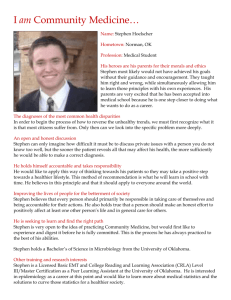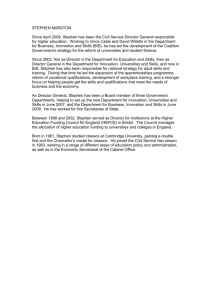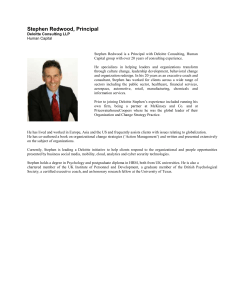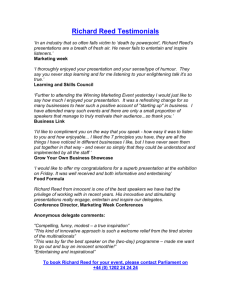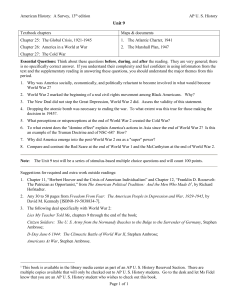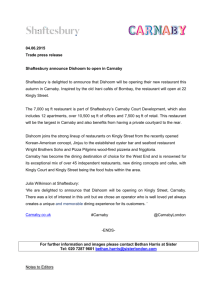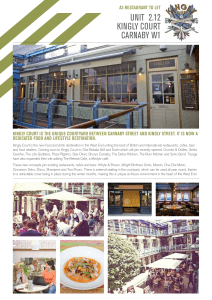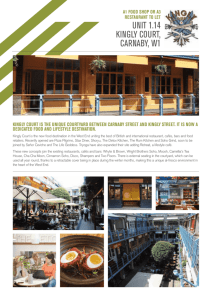Press Release
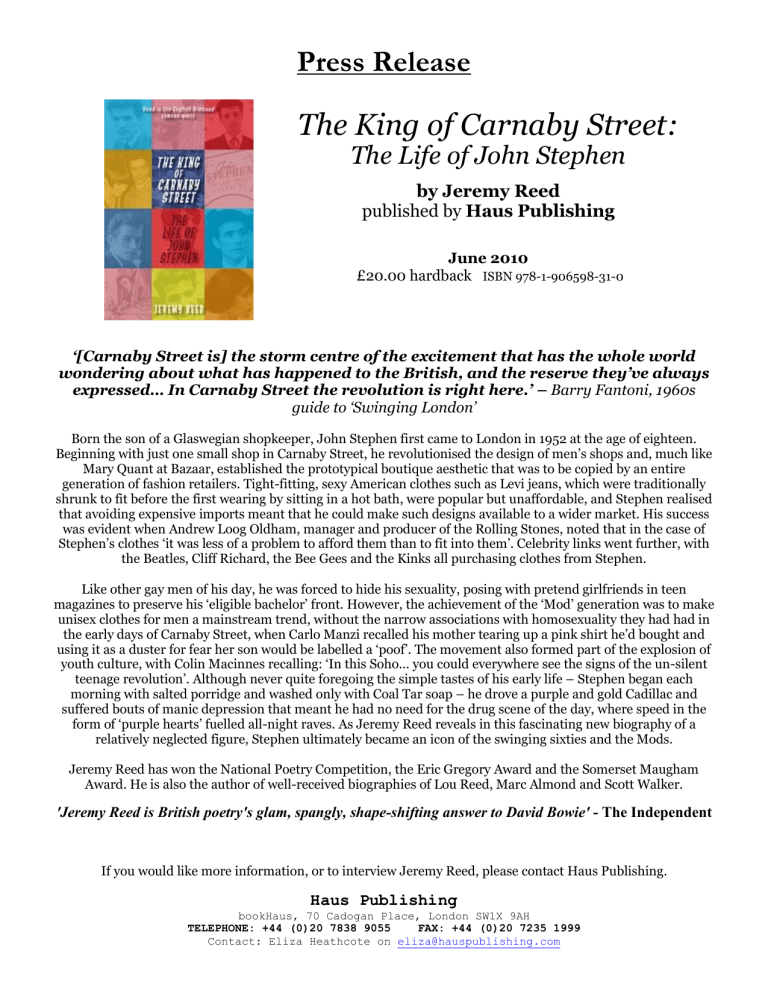
Press Release
The King of Carnaby Street:
The Life of John Stephen
by Jeremy Reed published by Haus Publishing
June 2010
£20.00 hardback ISBN 978-1-906598-31-0
‘[Carnaby Street is] the storm centre of the excitement that has the whole world wondering about what has happened to the British, and the reserve they’ve always
expressed… In Carnaby Street the revolution is right here.’ – Barry Fantoni, 1960s guide to ‘Swinging London’
Born the son of a Glaswegian shopkeeper, John Stephen first came to London in 1952 at the age of eighteen.
Beginning with just one small shop in Carnaby Street, he revolutionised the design of men’s shops and, much like
Mary Quant at Bazaar, established the prototypical boutique aesthetic that was to be copied by an entire generation of fashion retailers. Tight-fitting, sexy American clothes such as Levi jeans, which were traditionally shrunk to fit before the first wearing by sitting in a hot bath, were popular but unaffordable, and Stephen realised that avoiding expensive imports meant that he could make such designs available to a wider market. His success was evident when Andrew Loog Oldham, manager and producer of the Rolling Stones, noted that in the case of
Stephen’s clothes ‘it was less of a problem to afford them than to fit into them’. Celebrity links went further, with the Beatles, Cliff Richard, the Bee Gees and the Kinks all purchasing clothes from Stephen.
Like other gay men of his day, he was forced to hide his sexuality, posing with pretend girlfriends in teen magazines to preserve his ‘eligible bachelor’ front. However, the achievement of the ‘Mod’ generation was to make unisex clothes for men a mainstream trend, without the narrow associations with homosexuality they had had in the early days of Carnaby Street, when Carlo Manzi recalled his mother tearing up a pink shirt he’d bought and using it as a duster for fear her son would be labelled a ‘poof’. The movement also formed part of the explosion of youth culture, with Colin Macinnes recalling: ‘In this Soho… you could everywhere see the signs of the un-silent teenage revolution’. Although never quite foregoing the simple tastes of his early life – Stephen began each morning with salted porridge and washed only with Coal Tar soap – he drove a purple and gold Cadillac and suffered bouts of manic depression that meant he had no need for the drug scene of the day, where speed in the form of ‘purple hearts’ fuelled all-night raves. As Jeremy Reed reveals in this fascinating new biography of a relatively neglected figure, Stephen ultimately became an icon of the swinging sixties and the Mods.
Jeremy Reed has won the National Poetry Competition, the Eric Gregory Award and the Somerset Maugham
Award. He is also the author of well-received biographies of Lou Reed, Marc Almond and Scott Walker.
'Jeremy Reed is British poetry's glam, spangly, shape-shifting answer to David Bowie' - The Independent
If you would like more information, or to interview Jeremy Reed, please contact Haus Publishing.
Haus Publishing
bookHaus, 70 Cadogan Place, London SW1X 9AH
TELEPHONE: +44 (0)20 7838 9055 FAX: +44 (0)20 7235 1999
Contact: Eliza Heathcote on eliza@hauspublishing.com

